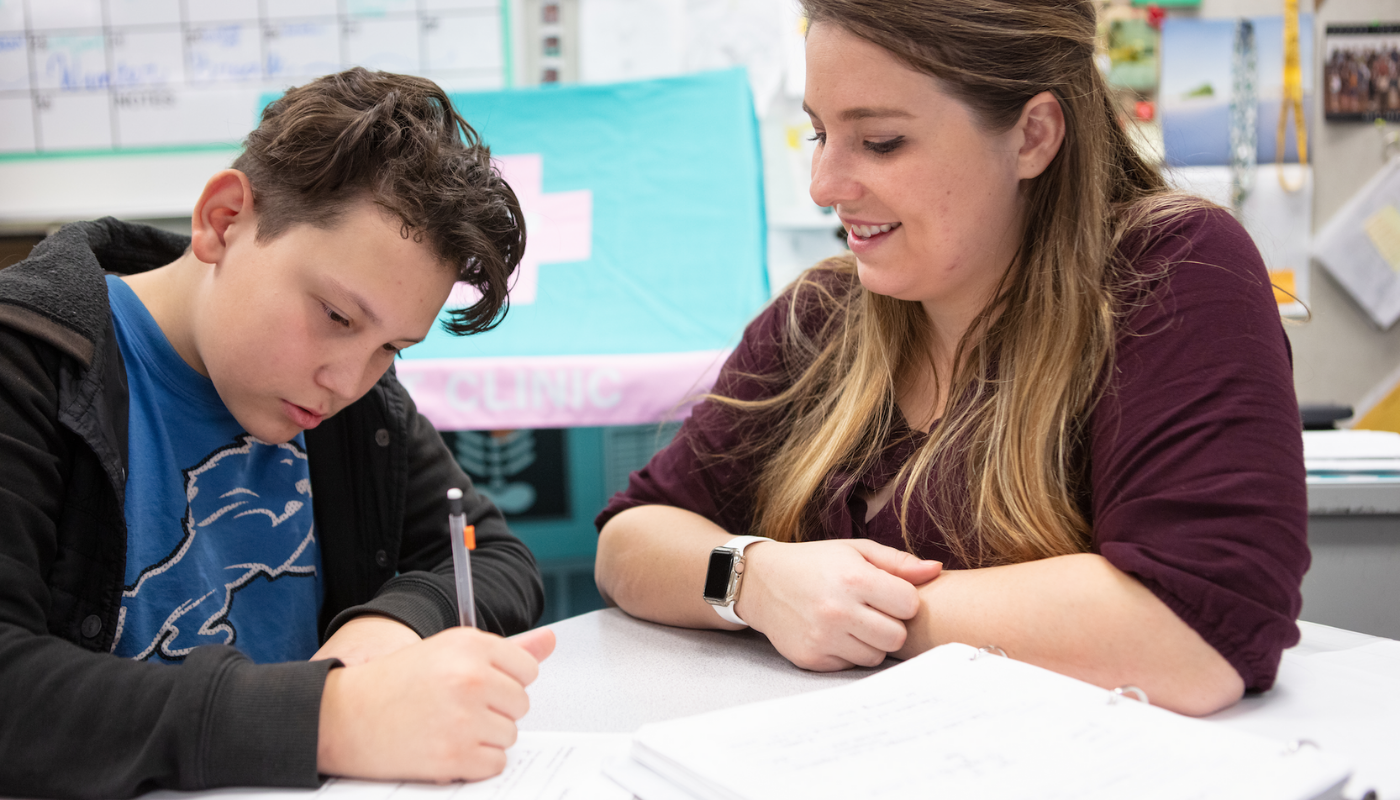
There has never been a school year quite like 2020-2021. In response to the challenges of learning in the midst of a pandemic, educators across the nation have found creative solutions to keep students engaged, from Olympic-style learning games to “Focus Fridays” that give students dedicated time to stay on top of schoolwork.
Teachers in Kentucky have shown a unique level of resolve and resourcefulness using Summit Learning amid the disruptions caused by COVID-19. Here’s a look at how three schools in the Bluegrass State have found success this school year.
South Floyd Elementary School
Located in the heart of the Appalachian mountains in Hi Hat, South Floyd Elementary School’s community rallied together and kept learning engaging, thanks to teachers like Kelsey Tackett. The eighth-grade teacher is known for making her classes fun, and that has continued no matter the learning setting. Tackett, who created a learning-based activity called the “Summit Olympics” in 2018, kept the competitive feeling going this school year through activities such as an at-home snowman-building competition.
“In these times, a lot of people only focus on attendance, but our team really likes to focus on building morale,” Tackett said. “That’s very crucial. During virtual learning, we’ve worked hard to maintain that for our students. We also really try to make mentoring not only supportive, but also fun.”
Tackett credits Summit Learning’s mentoring component with keeping spirits high in this challenging time. Most of South Floyd’s mentors were able to keep their same students from the previous school year, which has helped those students continue to grow.
“My teammates have really stepped into that role and have utilized that momentum from having these students two years in a row,” Tackett said. “It’s really cool to see students have that relationship and see how it grows over time. We’ve been able to be a resource for students who had to go through some difficult things without having that outlet at school.”

Grant County Middle School
Located in Northern Kentucky, Grant County Middle School in Dry Ridge has made an effort to bring meaning to all of their learning activities this year.
“We all make meaning from different things,” said Jamie Gokey, an English teacher at Grant County Schools. “Kids are going to do better if it is meaningful to them.”
Gokey said the teaching and learning continued nonstop at their school because of the emphasis placed on building relationships between teachers and students well before the pandemic closed classroom doors. Focusing on social-emotional learning was more important than ever, and that helped Grant County educators make their lesson plans more meaningful to their students.
“During this year we have created opportunities for students to find and make their own meaning through content and projects,” Gokey said.
Russellville Middle School
At Russellville Middle School in Russellville, school leader Cassie Reding has been using remote learning as an opportunity to think outside the box.
During their hybrid-learning model, Russellville built a schedule around Summit Learning. The beginning of the day includes a built-in mentoring block where teachers remind students to set goals and go over their schedules. On Fridays, a day without in-person classes, Reding and her staff secured buses to bring students in for a couple hours for “Focus Fridays.” This dedicated time at the end of each week helps students catch up on work they were behind on or had missed due to the hybrid model.
The result of this schedule has been large gains in student outcomes, including the number of Focus Areas students were passing and the quality of their work overall. Before winter break, zero percent of sixth-grade students were “on track” to complete their Focus Areas. After the first Focus Friday, 32% of students were on track. Providing bus transportation—especially for students whose parents weren’t able to bring them in during the day—gave all students a chance to be on campus to catch up on schoolwork and to be with teachers and peers, resulting in a more equitable learning environment for all.
“If nothing else, the situation created due to the pandemic has given us the opportunity to try new strategies and approaches to learning,” Reding said. “I always frown when I hear someone say, ‘I can’t wait until it’s back to normal.’ At Russellville Middle School, we don’t necessarily want to transition back to normal. I think in certain ways our experiences this past year have been a breath of fresh air and allowed for shifts in mindset.”
Over the past year of remote and hybrid learning, we’ve heard countless stories of teachers, school leaders, and students who are continuing to make learning fun, strengthen relationships, and think outside the box during trying times.
As we plan for the eventual return to the classrooms, we know that many teachers and school leaders will bring the lessons they’ve learned from this past year with them to make the post-pandemic era of education more meaningful than ever.

